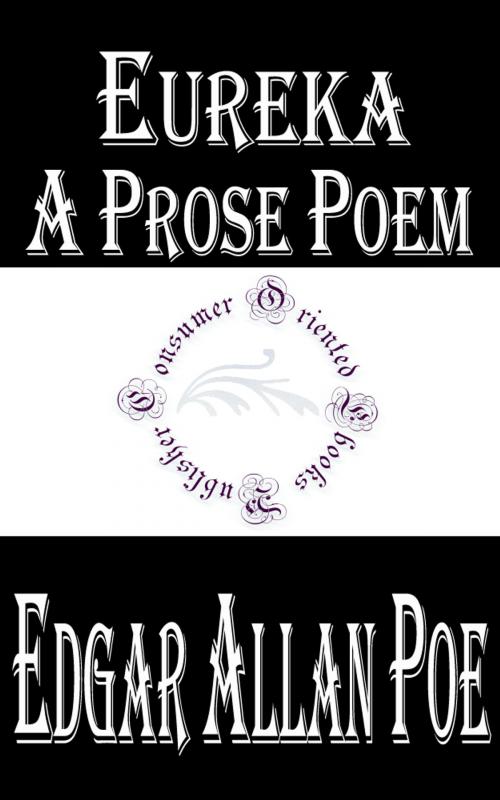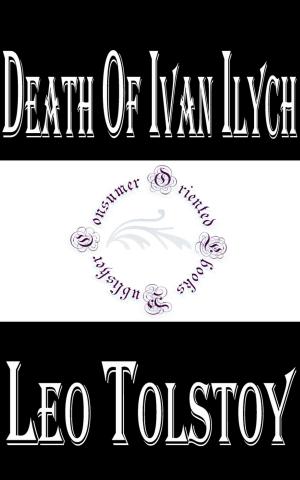Eureka (Annotated)
A Prose Poem
Nonfiction, Religion & Spirituality, Inspiration & Meditation, Spirituality, Christianity, Christian Life| Author: | Edgar Allan Poe | ISBN: | 1230000273749 |
| Publisher: | Consumer Oriented Ebooks Publisher | Publication: | October 13, 2014 |
| Imprint: | Language: | English |
| Author: | Edgar Allan Poe |
| ISBN: | 1230000273749 |
| Publisher: | Consumer Oriented Ebooks Publisher |
| Publication: | October 13, 2014 |
| Imprint: | |
| Language: | English |
*This Book is annotated (it contains a detailed biography of the author).
*An active Table of Contents has been added by the publisher for a better customer experience.
*This book has been checked and corrected for spelling errors.
Eureka (1848) is a lengthy non-fiction work by American author Edgar Allan Poe (1809–1849) which he subtitled "A Prose Poem", though it has also been subtitled as "An Essay on the Material and Spiritual Universe". Adapted from a lecture he had presented, Eureka describes Poe's intuitive conception of the nature of the universe with no scientific work done to reach his conclusions. He also discusses man's relationship with God, whom he compares to an author. It is dedicated to the German naturalist and explorer Alexander von Humboldt (1769–1859). Though it is generally considered a literary work, some of Poe's ideas anticipate discoveries of the 20th century. Indeed a critical analysis of the scientific content of Eureka reveals a non-causal correspondence with modern cosmology due to the assumption of an evolving Universe, but excludes the anachronistic anticipation of relativistic concepts such as black holes.
*This Book is annotated (it contains a detailed biography of the author).
*An active Table of Contents has been added by the publisher for a better customer experience.
*This book has been checked and corrected for spelling errors.
Eureka (1848) is a lengthy non-fiction work by American author Edgar Allan Poe (1809–1849) which he subtitled "A Prose Poem", though it has also been subtitled as "An Essay on the Material and Spiritual Universe". Adapted from a lecture he had presented, Eureka describes Poe's intuitive conception of the nature of the universe with no scientific work done to reach his conclusions. He also discusses man's relationship with God, whom he compares to an author. It is dedicated to the German naturalist and explorer Alexander von Humboldt (1769–1859). Though it is generally considered a literary work, some of Poe's ideas anticipate discoveries of the 20th century. Indeed a critical analysis of the scientific content of Eureka reveals a non-causal correspondence with modern cosmology due to the assumption of an evolving Universe, but excludes the anachronistic anticipation of relativistic concepts such as black holes.















